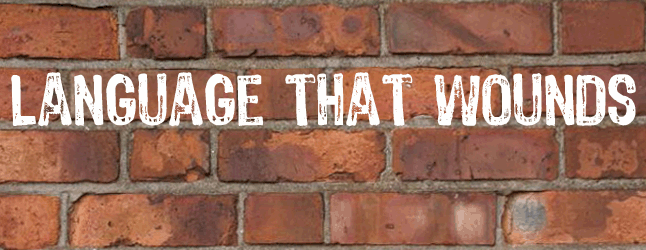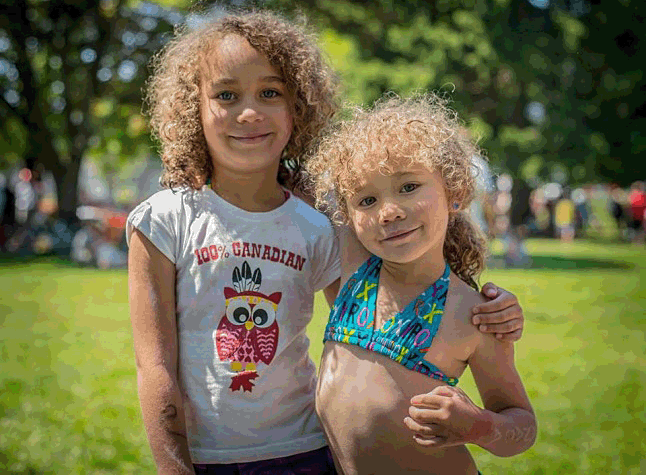
By Laura Stovel
Call me naïve. As a middle-class white person who tends to hang out with like-minded people in Revelstoke, I assumed that the ‘n’ word – the derogatory term for people of African descent – was a thing of the past. Yet as I interviewed visible minority community members and parents about their experiences of racism in Revelstoke, the ‘n’ word came up all too often.
In some workplaces, public spaces, and even in schools where there are strong efforts to create safe spaces and challenge racism and homophobia, that ‘n’ word is sometimes used, along with other racial slurs. And it is very difficult for the person targeted to fight back.
One visible minority man, who asked not to be identified, described the frustration he feels in a work environment where racist comments are common. He has worked for two major employers in town, both of which have policies against racism and harassment, but the policies don’t necessarily match the realities on the ground.
“It’s unfortunate that my workplace has anti-racism policies yet people are more openly racist than you hear in the bar,” he said. “They call names. They won’t talk to you directly but you can feel it in the air. I deal with it by pretending I didn’t hear what was said, but I’ve heard it so many times.
“You can make a point of it and say, ‘Hey, I heard what you said. I’m going to report it to the management.’ Then you are taking a chance that you are going to be branded. No one is going to be your friend any more. You might as well just quit.”
Reporting is difficult because, in his current and past workplaces, supervisors were part of the culture and laughed at racist jokes. “So who do you really talk to?” he asked.
Seventeen-year-old high school student Riley Olson also hears the ‘n’ word. When asked whether he experienced racism, Olson replied, “A bunch. It started in elementary school and it got worse in high school because people actually knew more about it and how to use (racist) terms.”
Our schools have policies against racism and if staff hear racist comments they respond, he said, “but they don’t always see it happening.”
Kristine Short, whose children are half African-Canadian, told a story about her daughter Kasey, who was five at the time, finding the ‘n’ word scribbled with white-out on a picnic table. Kasey was just learning to read and was trying to sound the word out. “She was so proud of herself because she read it,” Short said. Kasey asked, “Mommy, what does n… mean?”
“My heart just went…,” Howe said. “It’s not anyone intentionally being ignorant. It’s some person with white-out being a big shot, sitting at a table. I said, ‘That’s a word we don’t use. It’s an ignorant word.’ If that person who wrote that came over I would like them to explain what that word means to my child.”
None of the people above described incidents of violence or even feeling physically threatened, yet this has happened in the past. A mother from a visible minority family, who asked not to be identified, described her sons being severely beaten and hospitalized when they were in high school in the late 1970s and early 1980s. Although much has changed since then, one son experienced racial violence in Revelstoke in the last decade. Homophobic attacks and threats have also occurred in recent years.
Not all members of vulnerable minorities have bad experiences. Revelstoke can be a very accepting place, and a positive culture, combined with a solid group of friends and allies, can be a powerful buffer against racism and homophobia. In response to an article I wrote profiling young men who felt they had to leave Revelstoke before coming out as gay, I received an e-mail from Braedon Lenzi, who was openly gay during Grades 11 and 12. “I had my own close-knit group of friends that, for the most part, were aware of my lifestyle (even before I came out). I had no trouble with anyone from school and I think RSS played a huge part in making me feel like it was a safe environment to express who I really was,” he wrote.
So what does this all mean? In general, Revelstoke is a welcoming and inclusive town. We are used to receiving visitors and new residents from many parts of the world and take pride in our international reputation. We are establishing organizations that specifically support minority groups such as the Safe Spaces Revelstoke Society, a gay-straight alliance, and a new community Aboriginal friendship committee.
At the same time, the visible demographic diversity of Canada’s large cities is not reflected here and it can take a stretch of the imagination for some people to appreciate the diversity of our future.
Institutions, businesses and individuals all have roles to play in ensuring that racist and homophobic slurs, graffiti and violence become a thing of the past. As School District Superintendent Mike Hooker said, challenging prejudice at all levels, including name calling, helps ensure a culture of safety and mutual appreciation.
School District 19 has been proactive in addressing prejudice and making students and staff feel appreciated for who they are. Still, as Olson’s experience indicates, even with the best policies and the most supportive staff, reporting racist or homophobic statements can be challenging.
The experiences described above also show the importance of bystanders and allies. For a person offended by racist or homophobic comments or violence, whether a member of the targeted minority or not, speaking out can be intimidating, especially when the environment seems to support the offenders.
We are becoming increasingly aware that allies can be powerful in changing a racist or homophobic dynamic. Okanagan College has a video and training program that helps allies find the words to speak out against prejudice and stereotyping. (For more information about the video please call: 250-837-4235.)
There is much that we can do as a community to support those affected by hate-based incidents. On Wednesday, June 10 the City’s Social Development Committee is holding a community consultation to help develop a Protocol – a plan of action – to address hate-based incidents. Everyone is welcome to participate.
The consultation will begin with short presentations by members of minority groups and by responders, such as the police, victim services and the school district. This will be followed by a facilitated discussion about what could happen if an incident occurs in our community. The results of this discussion will contribute to a community protocol so that organizations, businesses and individuals will know what to do and who to turn to if a hate-based incident happens.
The consultation will be held on June 10 from noon to 2 pm in the MacPherson Room of the Community Centre. Lunch will be provided. For those interested in attending, please RSVP to Laura Stovel at lstovel0@gmail.com.



